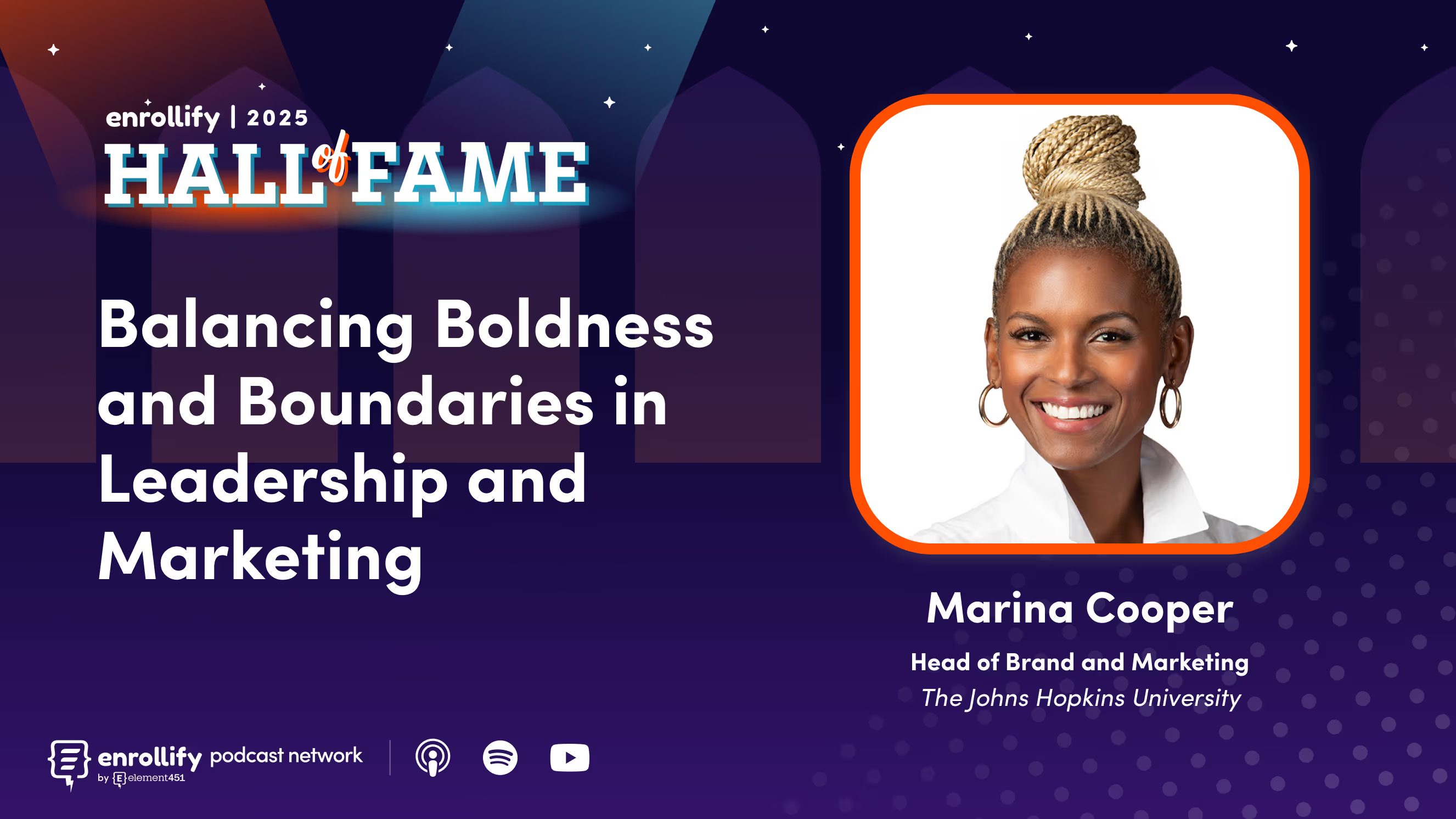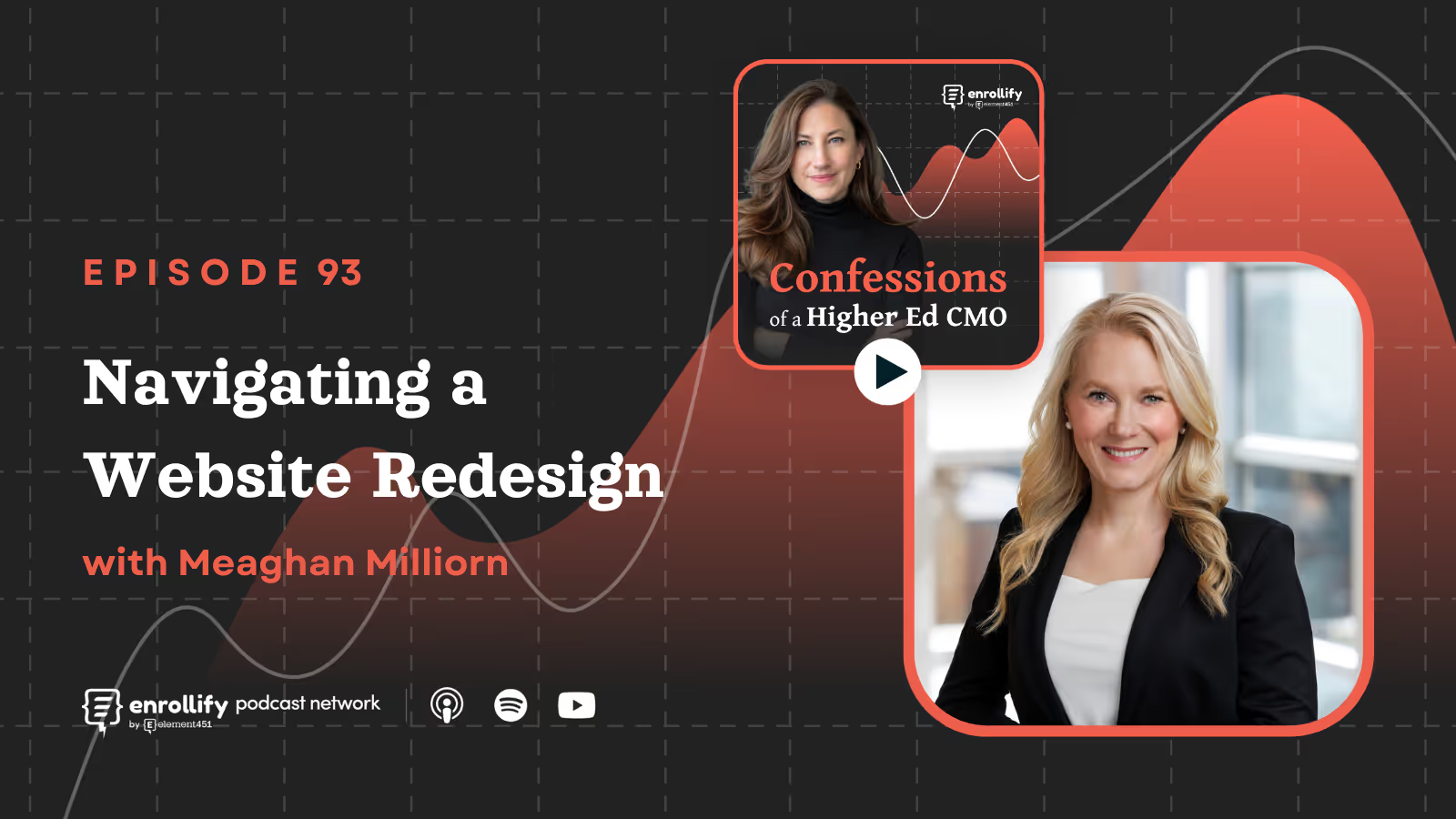About the Episode
In this episode, Kin and Allison explore how higher education marketers can better market to and recruit international students by prioritizing inclusive culture and authenticity. Kin sheds light on the importance of understanding international students on an individual basis, rather than assuming they all fit into one group. Whether you're an admissions officer, marketing professional, or simply interested in the world of international education, this episode will provide you with valuable insights and practical tips for connecting with international students in an authentic and meaningful way.
The Importance of International Student Recruitment
Colleges and universities often pride themselves on preparing students to be global citizens capable of addressing pressing worldwide challenges. Yet, this aspiration cannot be fully realized without a diverse and dynamic international student body. International students bring cultural perspectives that enrich the classroom, the campus, and the broader community. They also prepare domestic students for careers in an interconnected world, where working across cultural and geographic boundaries is increasingly the norm.
However, as Kin notes, attracting and retaining international students is about more than enrollment figures. It is about fulfilling a promise to provide students with the tools, relationships, and experiences they need to thrive personally and professionally. International student recruitment is not just an admissions initiative—it is a core component of delivering on an institution’s educational mission.
Kin Sejpal’s Journey as an International Student
Kin’s story is one of perseverance and self-discovery. Born and raised in India, she initially doubted whether her undergraduate education had prepared her for a master’s program in the United States. Encouraged by a faculty mentor, Kin took a leap of faith and entered the graduate program in communication at Purdue University. This experience not only advanced her academically but also provided a practical foundation for her career. As part of her studies, she worked on communication projects for the university, gaining hands-on experience that shaped her path in higher education marketing.
Kin’s journey highlights the profound impact of mentorship, opportunity, and community. Her story underscores the importance of faculty and staff support in helping international students transition successfully to new academic environments.
Breaking Down Barriers for International Students
The decision to study abroad is not a simple one, particularly for international students and their families. As Kin explains, this process involves complex factors, including financial considerations, safety concerns, and cultural perceptions. Families often play an integral role in these decisions, especially in cultures where collective decision-making is valued. Additionally, students frequently rely on trusted sources such as agents, alumni, or peers from their home countries to guide their choices.
For institutions, this means that marketing efforts must address these nuanced needs and concerns. Messaging should go beyond cost and academic programs to emphasize safety, community, and a robust support system. Prospective students need to see evidence that they will be welcomed, included, and empowered to succeed—academically, socially, and professionally.
Kin emphasizes that institutions must first assess their existing support structures for international students. Are there resources beyond an immigration office? Do international students feel integrated into the campus community? It is not enough to attract students with promises of opportunity; those promises must be fulfilled through tangible actions and cultural inclusivity.
Fostering a Culture of Inclusion
One of the most compelling points Kin raises is the need for reciprocity in creating an inclusive campus culture. While international students are often expected to assimilate into U.S. culture, institutions rarely make the same effort to integrate their experiences, traditions, and perspectives into the broader campus environment. True inclusivity requires mutual learning and engagement.
This can be achieved through programs that encourage cultural exchange and by creating opportunities for domestic students to interact meaningfully with their international peers. It is also vital to adopt inclusive language—terms like “non-resident alien” can be alienating and reinforce feelings of otherness. Institutions must be intentional in their efforts to ensure international students feel valued and respected, not just accommodated.
Marketing with Empathy and Strategy
Kin’s insights offer a roadmap for more effective international student marketing. She emphasizes the importance of storytelling in showcasing the transformative experiences of international students and alumni. These stories should capture not only academic success but also the personal growth and challenges that make their journeys unique. Authentic storytelling fosters trust and connection, demonstrating that the institution understands and values the international student experience.
Equally important is the need for nuanced segmentation. International students are not a homogenous group, and their motivations, challenges, and cultural contexts vary widely. Marketing strategies must be tailored to address these differences, whether by geography, program interest, or other factors. Moreover, institutions should think beyond their own brand and contribute to the broader narrative of why studying in the United States is valuable.
Kin also highlights the importance of testing and adapting marketing messages to ensure they resonate across cultural contexts. For example, idioms and metaphors that work in U.S. advertising may not translate effectively abroad. Institutions should engage current international students and alumni to review campaigns and provide feedback, ensuring cultural sensitivity and relevance.
This Episode is Sponsored by our friends at Element451:
Element451 is an advanced student engagement CRM, providing higher ed institutions with a competitive admissions advantage from recruitment to enrollment through the use of AI, student behavior data, and modern marketing automation.
About the Enrollify Podcast Network:
The Application is a part of the Enrollify Podcast Network. If you like this podcast, chances are you’ll like other Enrollify shows too!
Our podcast network is growing by the month and we’ve got a plethora of marketing, admissions, and higher ed technology shows that are jam packed with stories, ideas, and frameworks all designed to empower you to be a better higher ed professional. Our shows feature a selection of the industry’s best as your hosts. Learn from Jeremy Tiers, Zach Busekrus, Jaime Hunt, Allison Turcio, Jamie Gleason and many more.
Learn more about The Enrollify Podcast Network at podcasts.enrollify.org. Our shows help higher ed marketers and admissions professionals find their next big idea — come and find yours!







.avif)







